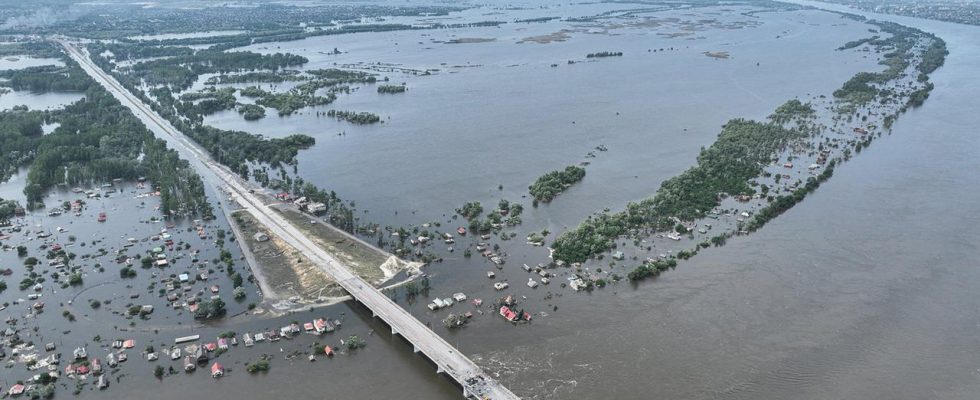According to a study, Russia’s war of aggression against Ukraine has so far caused climate damage comparable to the emission of 150 million tons of CO2. The authors of the study suggest that Russia be held liable.
The international “Greenhouse Gas Accounting of War Initiative” organized by civil society calculates the massive climate damage caused by Russia’s war in Ukraine. For scientists, the worst single event is the destruction of the Kakhovka dam in June 2023. This could also be prosecuted as “ecocide” before the international criminal court in The Hague, which has issued an arrest warrant against Russian President Vladimir Putin.
The breach of the dam resulted in a destructive flood and a total loss of this water reservoir. Other major events include the attacks on the North Stream pipelines and the resulting greenhouse gas emissions, which were also taken into account in the study.
Overall, in its third study on the environmental consequences of the war in Ukraine, the civil society initiative comes to the conclusion that the climate damage is equivalent to 150 million tons of CO2, the same amount as Belgium’s annual CO2 emissions.
The study, which was funded by the Ukrainian state, the European Climate Foundation and the German Ministry of Economic Affairs and Climate Protection, among others, will be presented in the evening at the UN Climate Conference in Dubai.
The biggest “damage item” is reconstruction emissions
The climate damage is caused by the acts of war itself, by troop transports and refugee movements, but also, for example, by the consequences of building, forest and landscape fires and other natural destruction. However, according to calculations by the authors of the study, the largest “damage item” is the foreseeable reconstruction emissions.
Cement and steel are needed to repair destroyed houses, energy and industrial facilities as well as roads and railways. These building materials are particularly energy-intensive; according to the initiative’s calculations, their production causes almost 55 million tons of CO2 equivalent.
However, the researchers also see an opportunity in reconstruction: if Ukraine were able to eliminate the war damage in a resource-saving and climate-friendly manner by reducing energy-intensive materials and using climate-friendly building materials, CO2 savings of up to 30 percent could be generated.
Russia should pay “climate reparations”.
In the study, the initiative also calculated for the first time the costs of climate damage caused by the war in Ukraine. The authors come to a total of 9.6 billion US dollars. The calculation is based on an assumed average CO2 price of 64 dollars per ton of CO2 equivalent – the so-called “shadow carbon price”, which the World Bank and the European Bank for Reconstruction and Development also use as the basis for their calculations.
The nine authors recommend that Russia take recourse for this damage. “It has never happened before,” says Dutch climate scientist Lennard de Klerk, “that the climate damage of a war has been included. We believe that the Russian Federation must be held accountable.”
In a comprehensive legal analysis, the scientists show that climate damage should be included in the Ukraine damage register just like other war-related damage. This register is currently being created by the Council of Europe and is intended to form the basis for reparations regulations after the war. However, there is currently no precedent for including climate damage in such a reparations register.
Military and war – a “blind spot” in climate research
The climate-damaging destruction in Ukraine affects the entire world and Russia itself. The country is massively affected by climate change, for example by the huge forest fires in Siberia or the thawing of the permafrost in the Arctic regions.
But none of this seems to matter to the Putin regime, Lennard de Klerk notes: “They don’t actually do anything to reduce emissions. For example, Russia has made little progress in renewable energies and only relies on fossil fuels , also for its own energy production. The Russian government apparently doesn’t care about climate change.”
Torsten Mandalka, RBB, tagesschau, December 4th, 2023 1:00 p.m

